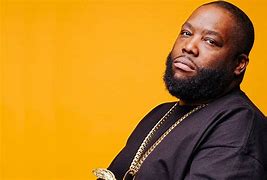Rapper Killer Mike Urges the Society to #BankBlack to Prevent More Black Banks from Closing Down

Rapper Killer Mike, also known as Michael Render, is advocating for more support from society to help black-owned banks thrive.
The rapper has been advocating for black-owned businesses and banks for years and has recently come out to once again emphasize the need to do more business with black banks to prevent them from shutting down, according to Bloomberg Businessweek.
In 2016, Killer Mike started a #BankBlack movement, is once again urging his supporters and the society at large to make use of the ongoing Black Lives Matter movement to support black banks. About two decades ago, there were 48 black-owned banks in the United States, now there are only less than half of that number of black-owned banks.
The rapper pointed out that since the financial crisis of 2008, big banks have grown in size and gained over $2 trillion but the asset of black-owned banks combined has dramatically declined.
“The best way to punish a wicked system within capitalism is to use capital, your dollar,” to reveal that “systemic racism is bad for money, it’s bad for business,” the rapper said.
The only black-owned bank that has greatly benefitted from the BLM movement is the OneUnited Bank in Boston, with $%0 million in new deposits. The bank has also added over 40,000 new customers since the beginning of the BLM protest which was stirred by the gruesome death of George Floyd. Many organizations that financially supported black businesses and black communities, operated through OneUnited. For example, Netflix pledged to give $100 million to lenders to help salvage the black community.
“Wall Street is connected to any Black street in America—and if we don’t look at it that way, then this country continues to be a giant that’s hobbling along on a broken ankle,” Killer Mike said. “If the Black community is strong economically, the greater community is stronger.”
The rapper and activist is urging businesses and consumers to use their economic power to support Black lenders that serve underserved communities. The economic success of those banks will lead to a stronger economy that can help put an end to racial disparity and bridge the racial wealth gap in society.
The history of Black banks can be traced back to Freedman’s Savings and Trust Co., which was chattered in 1865 by the U.S. government to serve newly freed slaves. The bank didn’t last long as it shut down in 1874. Since then, many Black banks have emerged to serve the purpose of attending to African Americans who were denied by other lenders, yet, suffered the same fate of collapsing due to financial troubles.


Be the first to comment!
You must login to comment